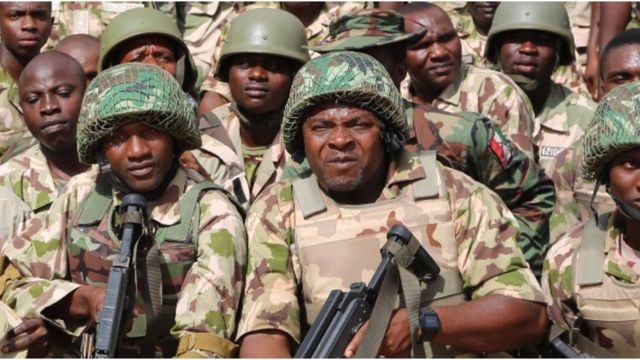Nigeria is currently leading the Economic Community of West African States (ECOWAS) to intervene in the ongoing coup crisis in the Republic of Niger following President Mohamed Bazoum’s overthrow.
In its bid to restore democracy, ECOWAS sent an ECOMOG force led by Nigerian troops to Sierra Leone to engage the rebel forces in 1997.
Nigeria is currently leading the Economic Community of West African States (ECOWAS) to intervene in the ongoing coup crisis in the Republic of Niger following President Mohamed Bazoum’s overthrow.
Having threatened the coup plotters with military intervention, the Chairman of ECOWAS, President Bola Tinubu, and other West African leaders on Thursday, August 10, 2023, will decide whether to reinstate Bazoum using force or diplomacy.
While the West African authorities are expected to make a difficult decision for the good of everyone, it’s important to look at what happened the last time the Nigerian military intervened in a similar crisis.
The Nigerian military has a history of leading the ECOWAS Ceasefire Monitoring Group (ECOMOG) to maintain peace and restore democracy in West African countries where rebel forces of military groups seek to seize power through coup d’etat.
But while the Nigerian troops still engage in peacekeeping missions in West Africa, the last time they were deployed on military intervention to resolve a coup crisis was in 1997, in Sierra Leone, following the ouster of President Ahmed Tejan Kabbah’s elected government by Major Johnny Paul Koroma.
In its bid to restore democracy, ECOWAS sent an ECOMOG force led by Nigerian troops to Sierra Leone to engage the rebel forces in 1997.
Before then, the Nigerian government had reportedly issued an ultimatum to the coup leaders to leave power and restore the elected president.
But after a breakdown of negotiations for the peaceful restoration of the president, the ECOMOG forces, led by the Nigerian troops decided to ‘contain’ the rebels.
The attack started with Nigerian naval vessels stationed off Freetown shelling the country’s capital on June 2, 1997.
By March 1998, the ECOMOG troops had defeated the rebel forces and reinstated Kabbah. Mission accomplished.
However, a series of human rights violation allegations followed the ECOMOG’s intervention in the country.
There were allegations that Nigeria intervened in the crisis without any official mandate from other West African leaders.
It was also alleged that the troops shelled boats carrying cargoes of rice and killed tens of civilians at a dockside market.
According to Human Rights Watch, Abass Bundu, a former Executive Secretary of ECOWAS described the bombardment of Freetown as “totally unwarranted and unjustified.”
The human rights organization also quoted former President of Burkina Faso, Blaise Compaore as saying “The agreements between the states of West Africa do not authorize military intervention to restore a regime or organize a counter-coup. This type of operation could cause further tragedies for the Sierra Leone people.”
Many other West African leaders reportedly frowned at Nigeria’s military intervention in the Sierra Leone crisis. Some of them supported the position of Ghana and Côte d’Ivoire leaders that the use of force against the military leaders in Sierra Leone should not be allowed.
But Tom Ikimi, the Nigerian Foreign Minister at the time would not let the many allegations against his country stand unaddressed.
At the meeting of Heads of State and Government in Harare, Zimbabwe in August 1998, Ikimi rejected the allegations against Nigeria.
“This is not interference. We at ECOWAS have always been interested in explosive situations that take place in our region which we see as endangering civilian lives and disturbing peace. Together with the international community, we must not allow such a situation to continue,” Ikimi retorted.
He insisted that Nigeria should not be blamed for the ECOWAS peacekeeping mission in Sierra Leone.
“Nigeria is going to ensure that peace, stability, and a legitimate government are restored in Sierra Leone. We, as Nigeria, are not in Sierra Leone as Nigeria. We are there because we have always been there as ECOMOG.” he said.













